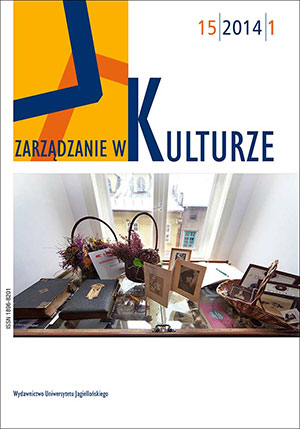„Świętowanie niecodzienne” – tożsamościowy fenomen regionalnego dziedzictwa kulturowego (Przykład Podhala i Beskidu Śląskiego)
“Uncommon celebration” – an identity phenomenon of regional cultural heritage (An example of Podhale and Beskid Śląski regions)
Author(s): Urszula LehrSubject(s): Cultural Essay, Political Essay, Societal Essay
Published by: Wydawnictwo Uniwersytetu Jagiellońskiego
Keywords: celebration; customs; cultural identity; tradition; contemporaneity; borderland regions; villages of Podhale and Beskid Śląski; the Carpathians
Summary/Abstract: The ritualization of rural life present in contemporary reality that puts its signature on existential uncommonness favors pondering on the causality of practicing ceremonial celebrations in a form that corresponds to the tradition of olden days. Such ceremonies manifest the clash of the past and present time, with the latter modifying some sequences of the ceremony; nevertheless, the above-mentioned clash emphasizes the unchanging scenario of a cultural act with its preserved rituals, gestures, verbalized contents and – what may be seen in Podhale – folk dress. The cultivation of old contents and at times introduction of forgotten rituals is justified by tradition stimulated by a sense of identity (individual or collective) and to a lesser degree by institutionally steered tradition. It allows for placing the individual and the community in a mentally unchanged social-cultural space confirmed by ceremonies held (familial, annual). The presence of symbolic requisites, the behavior of the involved persons perceived by outside observers as a peculiar performance, are on the one hand a ceremonial implementation and a complement of a breakthrough event in the life of man, a religious act or a custom that is important for a given local group. On the other hand, however, their role is to: 1) maintain and strengthen the vanishing neighborly relations; 2) preserve the cultural continuity; 3) emphasize the regional individuality. The well-marked element of commercialization of regional identification as a signum temporis which is superimposed on the cultural and identity-associated dimension of ‘uncommon celebrations’ does not change the fact that such regional identification remains for a given community a basic and timeless evolving component of the cultural heritage.
Journal: Zarządzanie w kulturze
- Issue Year: 15/2014
- Issue No: 1
- Page Range: 49-58
- Page Count: 10
- Language: Polish

